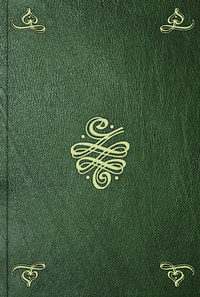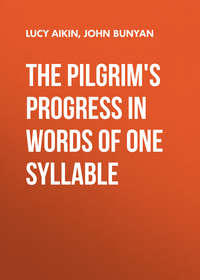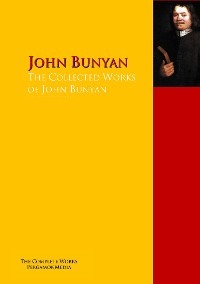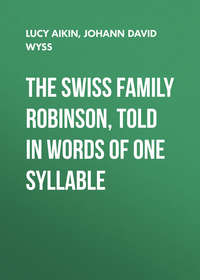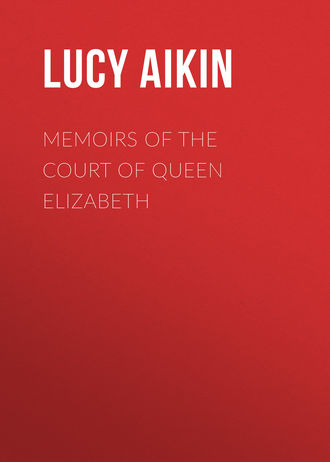 полная версия
полная версияMemoirs of the Court of Queen Elizabeth
This celebrated dispute appears to have been in some manner mingled or connected with the important question of peace or war with Spain, which had previously been debated with extreme earnestness between Essex and Burleigh. The former, who still thirsted for military distinction, contended with the utmost vehemence of invective for the maintenance of perpetual hostility against the power of Philip; while the latter urged, that he was now sufficiently humbled to render an accommodation both safe and honorable. Wearied and disgusted at length with the violence of his young antagonist, the hoary minister, in whom
......."old experience did attainTo something like prophetic strain,"drew forth a Prayer-book, and with awful significance pointed to the text, "Men of blood shall not live out half their days." But the clamor for war prevailed over the pleadings of humanity and prudence, and it was left for the unworthy successor of Elizabeth to patch up in haste an inconsiderate and ignoble peace, in place of the solid and advantageous one which the wisdom of Elizabeth and her better counsellor might at this time with ease have concluded.
The lord treasurer enjoyed however the satisfaction of completing for his mistress an agreement with the states of Holland, which provided in a satisfactory manner for the repayment of the sums which she had advanced to them, and exonerated her from a considerable portion of the annual expense which she had hitherto incurred in their defence. This was the last act of lord Burleigh's life, which terminated by a long and gradual decay on August 4th 1598, in the 78th year of his age.
On the character of this great minister, identified as it is with that of the government of Elizabeth during a period of no less than forty years, a few additional remarks may here suffice.—Good sense was the leading feature of his intellect; moderation of his temper. His native quickness of apprehension was supported by a wonderful force and steadiness of application, and by an exemplary spirit of order. His morals were regular; his sense of religion habitual, profound, and operative. In his declining age, harassed by diseases and cares and saddened by the loss of a beloved wife, the worthy sharer of his inmost counsels, he became peevish and irascible; but his heart was good; in all the domestic relations he was indulgent and affectionate; in his friendships tender and faithful, nor could he be accused of pride, of treachery, or of vindictiveness. Rising as he did by the strength of his own merits, unaided by birth or connexions, he seems to have early formed the resolution, more prudent indeed than generous, of attaching himself to no political leader, so closely as to be entangled in his fall. Thus he deserted his earliest patron, protector Somerset, on a change of fortune, and is even said to have drawn the articles of impeachment against him.
He extricated himself with adroitness from the ruin of Northumberland, by whom he had been much employed and trusted; and at some expense of protestant consistency contrived to escape persecution, though not to hold office, under the rule of Mary. Towards the queen his mistress, his demeanor was obsequious to the brink of servility; he seems on no occasion to have hesitated on the execution of any of her commands; and the kind of tacit compromise by which he and Leicester, in spite of their mutual animosity, were enabled for so long a course of years to hold divided empire in the cabinet, could not have been maintained without a general acquiescence on the part of Burleigh in the various malversations and oppressions of that guilty minion.
Another accusation brought against him is that of taking money for ecclesiastical preferments. Of the truth of this charge, sufficient evidence might be brought from original documents; but an apologist would urge with justice that his royal mistress, who virtually delegated to him the most laborious duties of the office of head of the church, both expected and desired that emolument should thence accrue to him and to the persons under him. Thus we find it stated that bishop Fletcher had "bestowed in allowances and gratifications to divers attendants about her majesty, since his preferment to the see of London, the sum of thirty one hundred pounds or there abouts; which money was given by him, for the most part of it, by her majesty's direction and special appointment122."
The ministers of a sovereign who scrupled not to accept of bribes from parties engaged in law-suits for the exertion of her own interest with her judges, could scarcely be expected to exhibit much delicacy on this head. In fact, the venality of the court of Elizabeth was so gross, that no public character appears even to have professed a disdain of the influence of gifts and bribes; and we find lord Burleigh inserting the following among rules moral and prudential drawn up for the use of his son Robert when young: "Be sure to keep some great man thy friend. But trouble him not for trifles. Compliment him often. Present him with many yet small gifts, and of little charge. And if thou have cause to bestow any great gratuity, let it be some such thing as may be daily in his sight. Otherwise, in this ambitious age, thou shalt remain as a hop without a pole; live in obscurity, and be made a football for every insulting companion123."
In his office of lord treasurer, this minister is allowed to have behaved with perfect integrity and to have permitted no oppression on the subject; wisely and honorably maintaining that nothing could be for the advantage of a sovereign which in any way injured his reputation. His conduct in this high post, added to a general opinion of his prudence and virtue, caused his death to be sincerely deplored and his memory to be constantly held in higher esteem by the people than that of any former minister of any English prince.
Elizabeth was deeply sensible that to her the loss of such a servant, counsellor, and friend was indeed irreparable. Contrary to her custom, she wept much; and retired for a time from all company; and it is said that to the end of her life she could never hear or pronounce his name without tears. Although she was not sufficiently mistress of herself in those fits of rage to which she was occasionally liable, to refrain from treating him with a harshness and contempt which sometimes moved the old man even to weeping, her behaviour towards him satisfactorily evinced on the whole her deep sense of his fidelity and various merits as a minister, and her affection for him as a man. He was perhaps the only person of humble birth whom she condescended to honor with the garter: she constantly made him sit in her presence, on account of his being troubled with the gout, and would pleasantly tell him, "My lord, we make much of you, not for your bad legs but your good head124." In his occasional fits of melancholy and retirement, she would woo him back to her presence by kind and playful letters, and she absolutely refused to accept of the resignation which his bodily infirmities led him to tender two or three years before his death. She constantly visited him when confined by sickness:—on one of these occasions, being admonished by his attendant to stoop as she entered at his chamber-door, she replied, "For your master's sake I will, though not for the king of Spain." His lady was much in her majesty's favor and frequently in attendance on her; and it has been surmised that her husband found her an important auxiliary in maintaining his influence.
Elizabeth had the weakness, frequent among princes and not unusual with private individuals, of hating her heir; a sentiment which gained ground upon her daily in proportion as the infirmities of age admonished her of her approach towards the destined limit of her long and splendid course. Notwithstanding the respectful observances by which James exerted himself to disguise his impatience for her death, particular incidents occurred from time to time to aggravate her suspicion and exasperate her animosity; and the present year was productive of some remarkable circumstances of this nature. The queen had long been displeased at the indulgence exercised by the king of Scots towards certain catholic noblemen by whom a treasonable correspondence had been carried on with Spain and a very dangerous conspiracy formed against his person and government. Such misplaced lenity, combined with certain negotiations which he carried on with the catholic princes of Europe, she regarded as evincing a purpose to secure to himself an interest with the popish party in England as well as Scotland, which she could not view without anxiety: And her worst apprehensions were now confirmed by the information which reached her from two different quarters, that James, in a very respectful letter to the pope, had given him assurance under his own hand of his resolution to treat his catholic subjects with indulgence, at the same time requesting that his holiness would give a cardinal's hat to Drummond bishop of Vaison. Almost at the same time, one Valentine Thomas, apprehended in London for a theft, accused the king of Scots of some evil designs against herself. Explanations however being demanded, James solemnly disavowed the letter to the pope, which he treated as a forgery and imposture; though circumstances which came out several years afterwards render the king's veracity in this point very questionable.
To the charge brought by Thomas, he returned a denial, probably better founded; and required that the accuser should be arraigned in presence of some commissioner whom he should send: but Elizabeth, less jealous of his dealings with the papal party now that she no longer dreaded a Spanish invasion, judged it more prudent to bury the whole matter in silence, and resumed, in the tone of friendship, the correspondence which she regularly maintained with her kinsman.
This correspondence, which still exists in MS. in the Salisbury collection, is rendered obscure and sometimes unintelligible by its reference to verbal messages which the bearers of the letters were commissioned to deliver: but several of those of Elizabeth afford a rich display of character. She sometimes assures James of the tenderness of her affection and her disinterested zeal for his welfare in that tone of hypocrisy which was too congenial to her disposition; at other times she breaks forth into vehement invective against the weakness and mutability of his counsels, and offers him excellent instructions in the art of reigning; but clouded by her usual uncouth and obscure phraseology and rendered offensive by their harsh and dictatorial style. When she regards herself as personally injured by any part of his conduct, her complaints are seasoned with an equal portion of menace and contempt; as in the following specimen.
Queen Elizabeth to the king of Scots:
"When the first blast of a strange, unused, and seld heard of sound had pierced my ears, I supposed that flying fame, who with swift quills oft paceth with the worst, had brought report of some untruth, but when too too many records in your open parliament were witnesses of such pronounced words, not more to my disgrace than to your dishonor, who did forget that (above all other regard) a prince's word ought utter nought of any, much less of a king, than such as to which truth might say Amen: But you, neglecting all care of yourself, what danger of reproach, besides somewhat else, might light upon you, have chosen so unseemly a theme to charge your only careful friend withal, of such matter as (were you not amazed in all senses) could not have been expected at your hands; of such imagined untruths as were never thought of in our time; and do wonder what evil spirits have possessed you, to set forth so infamous devices void of any show of truth. I am sorry that you have so wilfully fallen from your best stay, and will needs throw yourself into the hurlpool of bottomless discredit. Was the haste so great to hie to such opprobry as that you would pronounce a never thought of action afore you had but asked the question of her that best could tell it? I see well we two be of very different natures, for I vow to God I would not corrupt my tongue with an unknown report of the greatest foe I have; much less could I detract my best deserving friend with a spot so foul as scarcely may be ever outrazed. Could you root the desire of gifts of your subjects upon no better ground than this quagmire, which to pass you scarcely may without the slip of your own disgrace?
Shall ambassage be sent to foreign princes laden with instructions of your rash-advised charge?… I never yet loved you so little as not to moan your infamous dealings, which you are in mind, we see, that myself shall possess more princes witness of my causeless injuries, which I should have wished had passed no seas to testify such memorials of your wrongs. Bethink you of such dealings, and set your labor upon such mends as best may, though not right, yet salve some piece of this overslip; and be assured that you deal with such a king as will bear no wrongs and endure infamy; the examples have been so lately seen as they can hardly be forgotten of a far mightier and potenter prince than any Europe hath. Look you not therefore that without large amends, I may or will slupper up such indignities. We have sent this bearer Bowes, whom you may safely credit, to signify such particularities as fits not a letters talk. And so I recommend you to a better mind and more advised conclusions." Dated January 4th 1597-1598125.
From another of these letters we learn that James had addressed a love-sonnet to the queen and complained of her having taken no notice of it; reminding her that Cupid was a God of a most impatient disposition.
An author has the following notice respecting sir Roger Aston, frequently the bearer of these curious epistles. "He was an Englishman born, but had his breeding wholly in Scotland, and had served the king many years as his barber; an honest and free-hearted man, and of an ancient family in Cheshire, but of no breeding answerable to his birth. Yet was he the only man ever employed as a messenger from the king to queen Elizabeth, as a letter-carrier only, which expressed their own intentions without any help from him, besides the delivery; but even in that capacity was in very good esteem with her majesty, and received very royal rewards, which did enrich him, and gave him a better revenue than most gentlemen in Scotland. For the queen did find him as faithful to her as to his master, in which he showed much wisdom, though of no breeding. In this his employment I must not pass over one pretty passage I have heard himself relate. That he did never come to deliver any letters from his master, but ever he was placed in the lobby; the hangings being turned towards him, where he might see the queen dancing to a little fiddle; which was to no other end than that he should tell his master, by her youthful disposition, how likely he was to come to the possession of the crown he so much thirsted after: for you must understand, the wisest in that kingdom did believe the king should never enjoy this crown, as long as there was an old wife in England, which they did believe we ever set up as the other was dead126."
Though in her own letters to James, Elizabeth made no scruple of treating him as the destined heir to her throne, she still resisted with as much pertinacity as ever, all the proposals made her for publicly declaring her successor; and on this subject, a lively anecdote is related by sir John Harrington in his account of Hutton archbishop of York, which must belong to the year 1595 or 1596.
"I no sooner," says he, "remember this famous and worthy prelate, but methinks I see him in the chappel at Whitehall, queen Elizabeth at the window in the closet; all the lords of the parliament spiritual and temporal about them, and then, after his three curtsies that I hear him out of the pulpit thundering this text, 'The kingdoms of the earth are mine, and I do give them to whom I will, and I have given them to Nebuchodonosor and his son, and his son's son:' which text when he had thus produced, taking the sense rather than words of the prophet, there followed first so general a murmur of one friend whispering to another, then such an erected countenance in those that had none to speak to, lastly, so quiet a silence and attention in expectance of some strange doctrine, where text itself gave away kingdoms and sceptres, as I have never observed before or since.
"But he… showed how there were two special causes of translating of kingdoms, the fullness of time and the ripeness of sin.... Then coming nearer home, he showed how oft our nation had been a prey to foreigners; as first when we were all Britons subdued by these Romans; then, when the fullness of time and ripeness of our sin required it, subdued by the Saxons; after this a long time prosecuted and spoiled by the Danes, finally conquered and reduced to perfect subjection by the Normans, whose posterity continued in great prosperity to the days of her majesty, who for peace, for plenty, for glory, for continuance, had exceeded them all; that had lived to change all her councillors but one; all officers twice or thrice; some bishops four times: only the uncertainty of succession gave hopes to foreigners to attempt fresh invasions and breed fears in many of her subjects of a new conquest. The only way then, said he, that is in policy left to quail those hopes and to assuage those fears, were to establish the succession… at last, insinuating as far as he durst the nearness of blood of our present sovereign, he said plainly, that the expectations and presages of all writers went northward, naming without any circumlocution Scotland; which, said he, if it prove an error, yet will it be found a learned error.
"When he had finished this sermon, there was no man that knew queen Elizabeth's disposition, but imagined that such a speech was as welcome as salt to the eyes, or, to use her own word, to pin up her winding sheet before her face, so to point out her successor and urge her to declare him; wherefore we all expected that she would not only have been highly offended, but in some present speech have showed her displeasure. It is a principle not to be despised, Qui nescit dissimulare nescit regnare; she considered perhaps the extraordinary auditory, she supposed many of them were of his opinion, she might suspect some of them had persuaded him to this motion;
finally, she ascribed so much to his years, to his place, to his learning, that when she opened the window we found ourselves all deceived; for very kindly and calmly, without shew of offence (as if she had but waked out of some sleep) she gave him thanks for his very learned sermon. Yet when she had better considered the matter, and recollected herself in private, she sent two councillors to him with a sharp message, to which he was glad to give a patient answer."
The premature death of Edmund Spenser, under circumstances of severe distress, now called forth the universal commiseration and regret of the friends and patrons of English genius. After witnessing the plunder of his house and the destruction of his whole property by the Irish rebels, the unfortunate poet had fled to England for shelter,—the annuity of fifty pounds which he enjoyed as poet-laureat to her majesty apparently his sole resource; and having taken up his melancholy abode in an obscure lodging in London, he pined away under the pressure of penury and despondence.
The genius of this great poet, formed on the most approved models of the time, and exercised upon themes peculiarly congenial to its taste, received in all its plenitude that homage of contemporary applause which has sometimes failed to reward the efforts of the noblest masters of the lyre. The adventures of chivalry, and the dim shadowings of moral allegory, were almost equally the delight of a romantic, a serious and a learned age. It was also a point of loyalty to admire in Gloriana queen of Faery, or in the empress Mercilla, the avowed types of the graces and virtues of her majesty; and she herself had discernment sufficient to distinguish between the brazen trump of vulgar flattery with which her ear was sated, and the pastoral reed of antique frame tuned sweetly to her praise by Colin Clout. Spenser was interred with great solemnity in Westminster abbey by the side of Chaucer; the generous Essex defraying the cost of the funeral and walking himself as a mourner. That ostentatious but munificent woman Anne countess of Dorset, Pembroke, and Montgomery, erected a handsome monument to his memory several years afterwards; the brother-poets who attended his obsequies threw elegies and sonnets into the grave; and of the more distinguished votaries of the muse in that day there is scarcely one who has withheld his tribute to the fame and merit of this delightful author. Shakespeare in one of his sonnets had already testified his high delight in his works; Joseph Hall, afterwards eminent as a bishop, a preacher, and polemic, but at this time a young student of Emanuel college, has more than one complimentary allusion to the poems of Spenser in his "Toothless Satires" printed in 1597. Thus, in the invocation to his first satire, referring to Spenser's description of the marriage of the Thames and Medway, he inquires,
......."what baser Muse can bideTo sit and sing by Granta's naked side?They haunt the tided Thames and salt Medway,E'er since the fame of their late bridal day.Nought have we here but willow-shaded shore,To tell our Grant his banks are left forlore."And again, in ridiculing the imitation of some of the more extravagant fictions of the Orlando Furioso, he thus suddenly checks himself;
"But let no rebel satyr dare traduceTh' eternal legends of thy faery muse,Renowned Spenser! whom no earthly wightDares once to emulate, much less dares despight.Salust of France127 and Tuscan Ariost,Yield up the laurel garland ye have lost."These pieces of Hall, reprinted in 1599 with three additional books under the uncouth title of "Virgidemiarum" (a harvest of rods), present the earliest example in our language of regular satire on the ancient model, and have gained from an excellent poetical critic the following high eulogium. "These satires are marked with a classical precision, to which English poetry had yet rarely attained. They are replete with animation of style and sentiment. The indignation of the satirist is always the result of good sense. Nor are the thorns of severe invective unmixed with the flowers of pure poetry. The characters are delineated in strong and lively colouring, and their discriminations are touched with the masterly traces of genuine humour. The versification is equally energetic and elegant, and the fabric of the couplets approaches to the modern standard128."
A few of his allusions to reigning follies may here be quoted. Contrasting the customs of our barbarous ancestors with those of his own times, he says:
"They naked went, or clad in ruder hide,Or homespun russet void of foreign pride.But thou can'st mask in garish gaudery,To suit a fool's far-fetched livery.A French head joined to neck Italian,Thy thighs from Germany and breast from Spain.An Englishman in none, a fool in all,Many in one, and one in several."Shakespeare makes Portia satirize the same affectation in her English admirer;—"How oddly he is suited! I think he bought his doublet in Italy, his round hose in France, his bonnet in Germany, and his behavior every where."
Other contemporary writers have similar allusions, and it may be concluded, that the passion for travelling then, and ever since, so prevalent amongst the English youth, was fast eradicating all traces of a national costume by rendering fashionable the introduction of novel garments, capriciously adopted by turns from every country of Europe.
"Cadiz spoil" is more than once referred to by Hall; and amongst expedients for raising a fortune he enumerates, with a satirical glance at sir Walter Raleigh, the trading to Guiana for gold; as also the search of the philosopher's stone. He likewise ridicules the costly mineral elixirs of marvellous virtues vended by alchemical quacks; and with sounder sense in this point than usually belonged to his age, mocks at the predictions of judicial astrology.
In several passages he reprehends the new luxuries of the time, among which coaches are not forgotten.
It should appear that the increasing conveniences and pleasures of a London life had already begun to occasion the desertion of rural mansions, and the decay of that boundless hospitality which the former possessors had made their boast; for thus feelingly and beautifully does the poet describe the desolation of one of these seats of antiquated magnificence:


